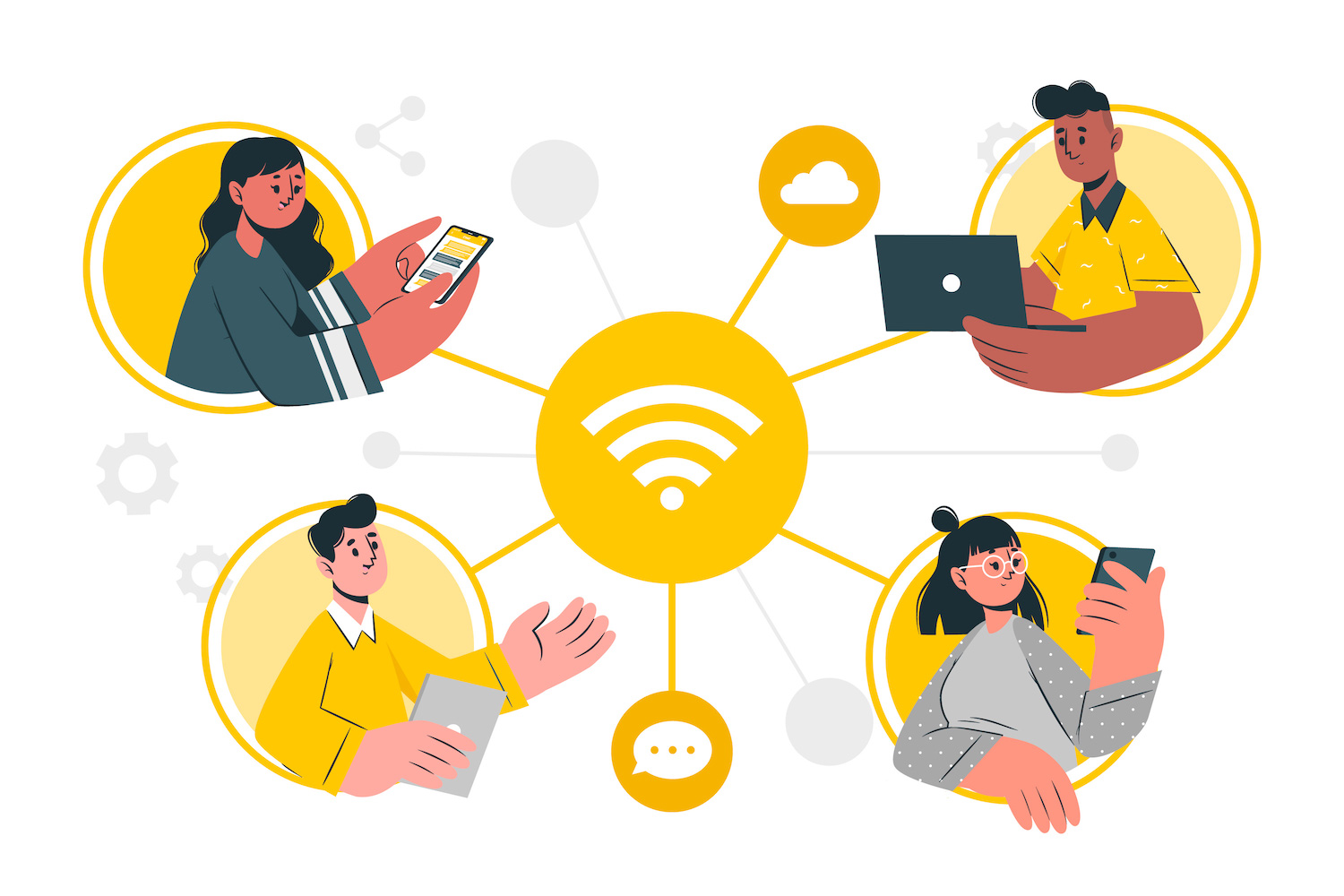Executives, let's change the way we connect within the workplace.
This month, I've been in an active debate on Quiet quitting at the World Economic Forum's annual conference in Davos. Changes in the workplace are rapid. I'm amazed by the fact that leaders have been asking plenty of appropriate questions. How do you balance the positives and negatives, and also the potential and risks associated by AI as well as the need to create an environment that's more durable and more comfortable.
However, one question is deserving of more consideration given that our world changes in the realm of technology as well as post-pandemic behavior and expectations have been changing...don't our leaders too have to evolve?
A whole new generation of digital natives who has joined the workforce. They've grown up creating and sharing videos instead of texting or calling. Today, people are capable of thinking of TikTok and YouTube as their primary sources for information. When it comes to their personal lives, they're very involved and very involved.
In their work lives, there's an entirely different story. There are dramatic declines of employee engagement and satisfaction in employees who are remote Gen Z and younger millennials. The only 4 percent of employees under 40 who are remotely or hybrid have a clear understanding of what's expected from them when they are working. More than half of Gen Z employees are ambivalent or not engaged at working. According to our thinking, engagement of employees is the most important gauge of the efficiency of workers and affects every firm and every income.
What is the cause of the disconnect? When we work, and all through our lives It's normal to seek to belong to some greater thing than what we actually are. It's our natural impulse to be part of something bigger and to claim an image that is honest, genuine and authentic and real. Since our society is increasingly digitally dispersed and AI-driven and ad-hoc, it's harder to make connections with regular individuals. Particularly, if we've not altered our methods of working in order to adapt to the latest generation. The employees we employ are expected to process an abundance of paperwork, write lengthy emails, along with attending boring gatherings. Employees learn about the upcoming layoffs and corporate priorities through messages made up of scripts, as well as automated messages that can be created with ChatGPT. Our only insight as managers has come from surveys of participation using cookie cutters or live events with very poor turn-in rate in addition to times it is a case of humorous chats or Q&A.
Traditional models of management aren't helping us. It's the time to change how we , as leaders, conduct ourselves and communicate with our employees. Similar to how we are focused on improving the capabilities of our employees in regard to the evolving technological capabilities of our workforce changes, demographics, and demographics we need to develop the capabilities we need to lead to increase confidence and connect with the entire population.
I've been experimenting with a few of them over the last few years . The following are what I've learned and put into practice and believe can help us perform differently , and to lead more effectively.
1. You're who you are.

As soon as the outbreak was reported that day, I hosted the town hall open to the world at the residence of my parents within Flint, Michigan -- exhausted, in my pajamas, which were made of velvet along with my son, who was a toddler, and my mother shifting between different background.
It could have been one of the most efficient communications ever at any point in time.
Why? because it was not planned and also made it uncomfortable, uncomfortable, and dirty. It's very easy to slip into "us against us, against them" circumstances while working in an office, particularly in times when there is stress or a challenge. It's very easy to view "leadership" as an unimportant or insignificant tool. It's true that being video-first when communicating is a powerful repellent. It forces you to peel off the veil and protect your self from editing and writing communications. One of the best ways to communicate your ideas is to show yourself as your true self.
There are a number of examples of leaders that faced risks, and ended up backfiring...but I'd wager that most of the time this was because the leadership had too many responsibility. You must accept the you are not perfect in your team. We all have flaws that make us human. Everyone would like to see leaders doing their best. This is a great way to inspire us to become more like the leaders they admire.
2. Start by asking "why . "
As with many managers I've had to make difficult decisions in the last year. In the past I've had to make executive decisions as well as laid-offs in addition to reorganizing and reducing projects so that they can be more efficient. It's my job to make these difficult and controversial choices as well as make rapid changes in the company.
In a growing number of situations, people are looking to learn the motivations behind their choices. The issue is not only about the "what" however there is an additional "why". That includes the desire to understand the larger perspective of competition, the trade-offs considered and balanced, as well as the procedure used, as well as the period it took.
The classic book on comms suggests that when confronted with an urgent problem with your communications that require attention from you to be a bit strained, start with the "what" before moving into the critical process. From my own experience, I've had greater successes in making my team members make the decision to position themselves as the primary stakeholders that need to be aware of the situation.
In the end, beginning with "why" is a the principal rule to adhere to in any communication regarding . There are certainly some limits in a fully transparent communications (legal or PR-related , as and risks for the consumer) But I've observed that the majority of perceptions about barriers to transparency is that. Perceived. There are people who might not be in agreement with your decision-making process, but you could argue that if they don't agree with your decision that it's not the fault of you. They'll accept and appreciate your choices in the beginning, as long as you know the reasoning to back them.
3. Make sure you attend events in person, or group gatherings that are in personal. it more personal.

Yes, I recognize the irony of having the role of CEO for a business who creates videos that say this. One of the most valuable things I've learned over the last couple of months was that we've all been in a stalemate for too long not being aware enough to get the teams closer and closer in real-time.
In January, a few days after the announcement of layoffs, we held a kickoff for our business in NYC. This event was attended by people from more than 12 countries. The employees we had were located in Ukraine who traveled via train or plane to reach us. We decided to steer free of the traditional confetti used for events and went with casual attire with only one or two ounces. It was certainly one of the most motivating and necessary decisions I've ever made.
This is especially true for those who lead teams that travel by aircraft and meet their staff no matter where they are. Our group comprises an executive group spread across the globe with 8 different offices which span across the globe from Seattle all the way to Switzerland. Most of our team was hired during the last year. Therefore, they are relatively new and are still forming one cohesive group. To accelerate the process of building an efficient group, the team started hosting offsites within the city where the individual leader's house. The CFO's mom hosted us by her fireplace in Vermont. Sales' head at the time was wearing an the apron. He made us frittatas for breakfast. The working sessions were held in the Table of the Chef of Product.

The crisis gave us the chance to examine the lives of others as well as family lives . If we can take advantage of this and incorporate the incident into our daily lives, it's possible to build stronger and more well-integrated groups.
4. There is a possibility of changing from "lean back" to "lean forward" information.
Communication skills are essential and could develop to the capacity to create "lean forward" experiences rather than "lean back" broadcasts. Humans have attention spans that have been decreasing (now lower than the mark of 8 seconds that is lower than that of a goldfish!). Communication is done through a variety of emails. This could be through the emails you've read, or an extremely produced town halls where you are allowed to participate of and observe.
The negative impact this has on engagement is evident through our own studies, that the time for stopping watching videos has reduced over the last few years. If we do not change how we run our businesses, the risk loss of viewers will significantly impact our ability to ensure that our teams remain working in harmony and efficiently.
It's essential to alter the way we think and to be open to different things. A younger generation working and is getting a a head start on us because they can generate and record real and full of details. They're ahead due to the fact that they're free from the limitations we had to endure in the past with old-fashioned methods of communicating at work.
It's true that employees do not leave their job, they let their managers go. In fact, the most efficient bosses. Based on the results of an survey that included more than 113,000 top executives One important aspect which makes leaders effective is their reliability to their employees. As leaders, we need be taught to act in more authentic, interesting and efficient ways. I'm betting that the executives who are willing to embrace changes in the world will enjoy greater success in managing the coming generation of their employees. They'll have better-educated and active teams that span the world, collaborate with their employees to achieve better results and create strong relationships which result in amazing results. They'll stop communicating and make connections that are better.
The post first appeared on here
The post first appeared on here
Article was first seen on here
